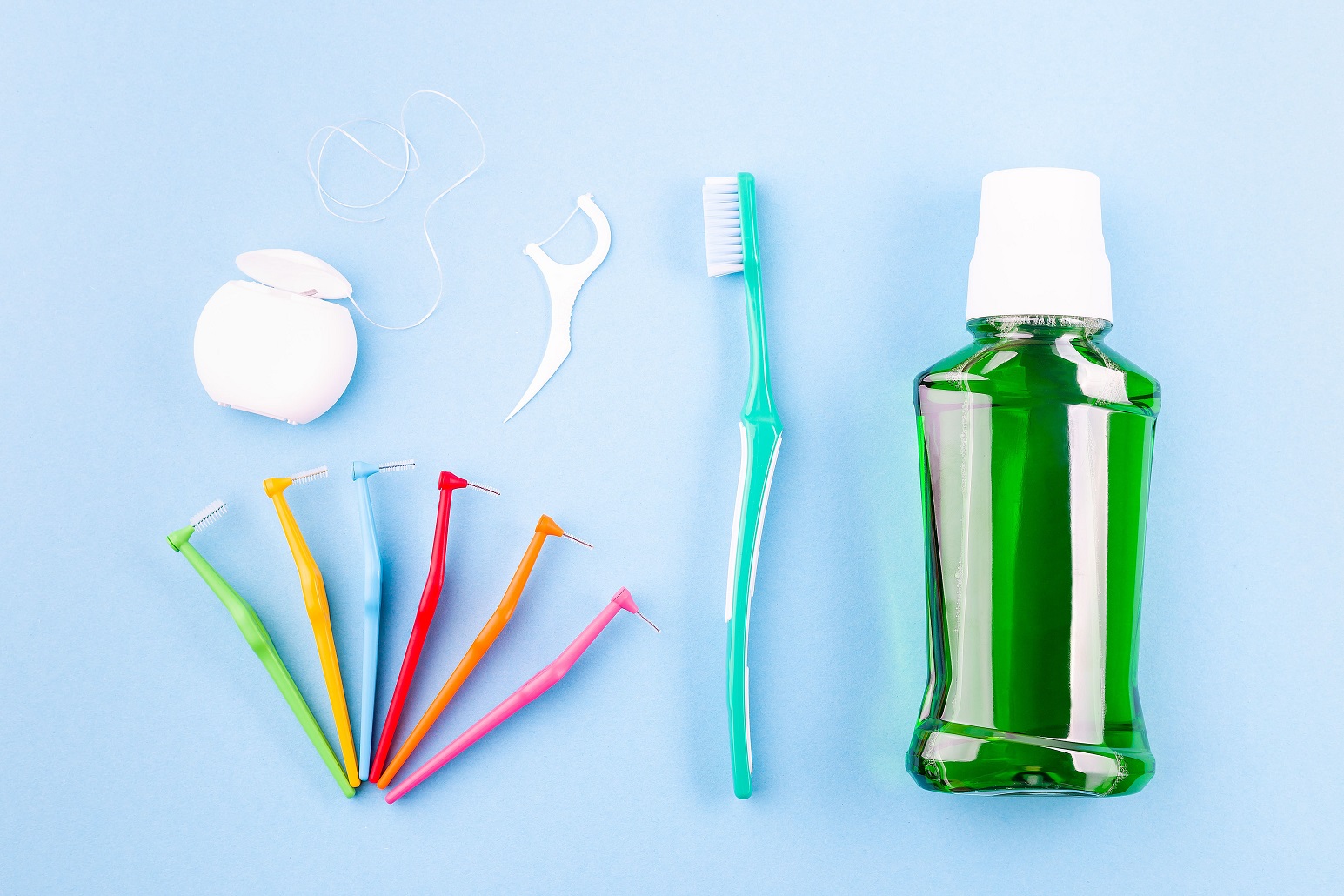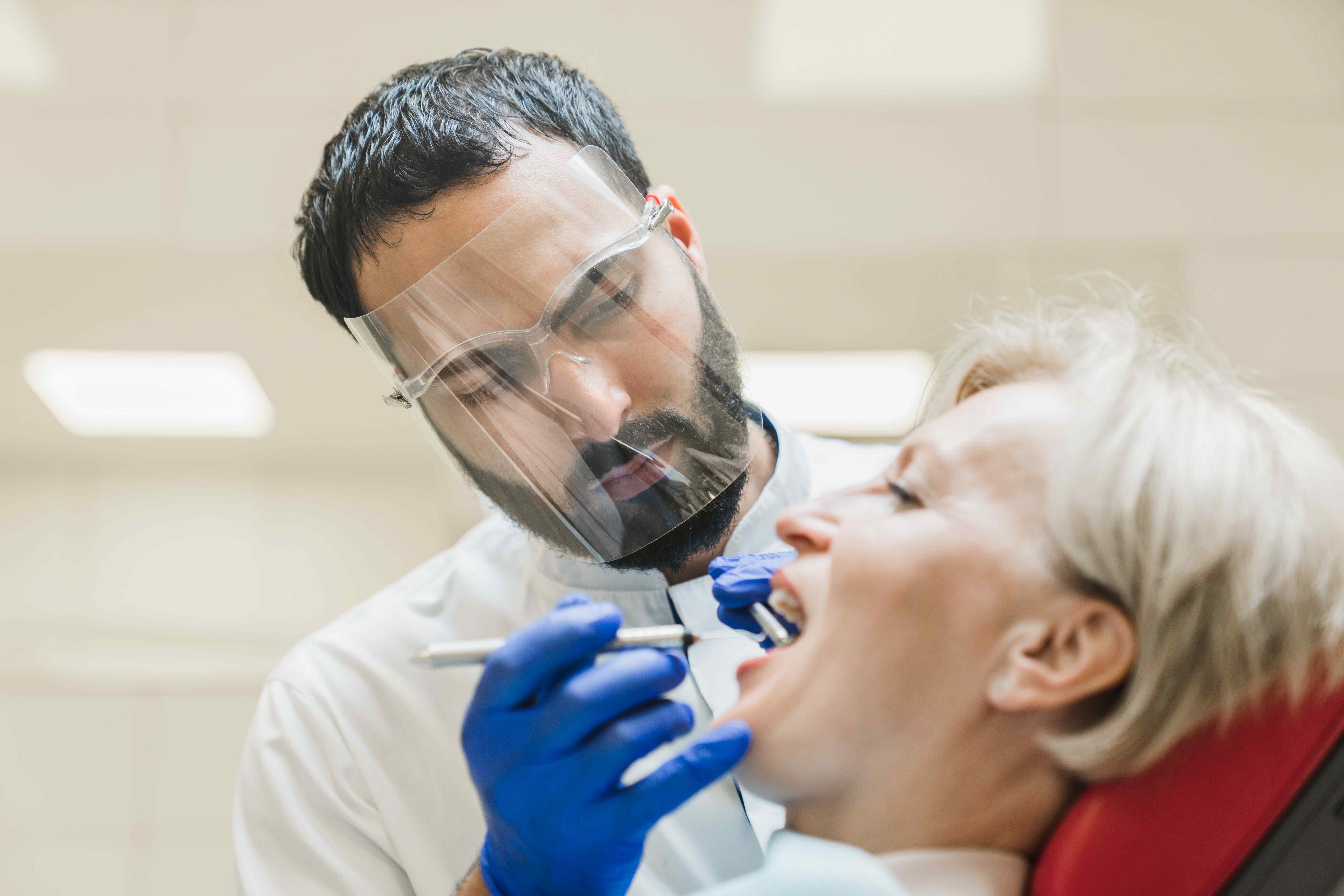Maintaining healthy gums involves more than just brushing, flossing, and regular dental visits. Increasing evidence…

Choosing the Right Oral Care Tools: A Patient’s Guide
Choosing the right oral care tools is essential for maintaining good dental health. Having the right tools not only makes your daily routine more effective but also helps keep your smile healthy for a long time. In this guide, we’ll look at some important tools you should consider:
- Toothbrushes: Knowing about different types of toothbrushes, such as manual and electric, can make a difference in how well you remove plaque and maintain oral hygiene.
- Dental Floss: Flossing is crucial for cleaning between your teeth, and there are various types of floss available to suit different needs and preferences.
- Mouthwash: When used regularly, mouthwash can provide extra protection against plaque and tooth decay.
- Interdental Tools: These tools are designed to clean between your teeth, making them especially useful for people with braces or larger gaps.
- Tongue Cleaners: By using tongue cleaners, you can get rid of bacteria that cause bad breath.
- Specialized Oral Care Tools: If you have specific dental needs like braces or veneers, there are specialized tools available to ensure thorough cleaning without causing any damage.
By understanding how each tool works, you can customize your oral care routine to improve your dental health and boost your confidence in your smile. Remember: the dental team at Felton Dentistry is here to answer any questions you might have!
1. Understanding Toothbrushes: Manual vs. Electric and Bristle Types
Choosing the right toothbrush is crucial for effective oral care. Manual toothbrushes are a popular choice for their simplicity and affordability. They allow users to control the pressure and technique, which can be especially beneficial for those with sensitive gums. It’s generally recommended to opt for soft bristles, as they are gentle on enamel and gums while effectively removing plaque.
On the other hand, electric toothbrushes have gained popularity due to their efficiency in cleaning teeth with less effort. They come in various models, such as sonic and oscillating-rotating. Sonic toothbrushes use high-frequency vibrations to break down plaque, making them an excellent choice for deep cleaning. Oscillating-rotating models feature a brush head that rotates back and forth to cover more surface area, which can significantly enhance plaque removal.
Studies suggest that electric toothbrushes can lead to better oral health outcomes by reducing plaque more effectively than manual brushing. This makes them particularly advantageous for individuals who struggle with manual dexterity or have difficulty maintaining consistent brushing techniques.
Understanding these differences helps in choosing the appropriate toothbrush type tailored to individual needs, ensuring optimal dental hygiene practices. Talk to your dentist at Felton Dentistry to see what options are best for you.
2. The Importance of Dental Floss in Your Oral Care Routine
Dental floss is an essential part of keeping your mouth healthy. It can clean places that toothbrushes can’t reach. Knowing about the different types of dental floss can help you pick the best one for your needs.
Types of Dental Floss
Here are the main types of dental floss:
- Unwaxed Floss: This traditional type is made from thin nylon strands, ideal for tight spaces between teeth. However, it may fray more easily compared to other types.
- Waxed Floss: Coated with a layer of wax, this variant glides smoothly between teeth and is less likely to shred. It’s particularly useful for those with closely spaced teeth.
- PTFE Floss: Known for its durability and smoothness, PTFE (Polytetrafluoroethylene) floss slides effortlessly between tight contacts without tearing. It’s an excellent choice for individuals who experience difficulty with standard floss types.
It’s also important to note that if you’re wearing braces, using waxed or PTFE floss could be more beneficial due to their strength and ease of use.
3. Mouthwash: A Key Component in Oral Care
Exploring different kinds of mouthwash can enhance your oral hygiene routine significantly.
Fluoride Mouthwash for Cavity Prevention and Enamel Protection
Fluoride mouthwash plays a crucial role in cavity prevention and enamel protection. By adding fluoride to the teeth, it strengthens them against decay, making it an excellent choice for those prone to cavities or with a history of dental issues.
Antibacterial Mouthwash for Gum Health
Antibacterial mouthwash is another important variant, known for its effectiveness against gingivitis and periodontal issues. It targets and eliminates bacteria responsible for gum disease, helping to reduce inflammation and prevent infections.
Including these specialized mouthwashes in your daily regimen can aid in maintaining a healthy oral environment. Each type addresses specific dental concerns, so choosing one based on your needs will ensure optimal benefits. Consult with your dentist at Felton Dentistry to determine which type of mouthwash best suits your oral health requirements.
4. Exploring Interdental Tools for Comprehensive Cleaning
Effective oral hygiene goes beyond brushing and flossing. Interdental cleaning devices play a crucial role in maintaining a healthy smile by targeting areas that traditional tools may miss.
Interdental Brushes
- Efficiency for Hard-to-Reach Areas: Interdental brushes are small, specially designed brushes that reach between teeth and under orthodontic appliances like braces. Their unique design makes them highly efficient for cleaning hard-to-reach areas, where plaque tends to accumulate.
- Ideal for Dental Work: These brushes are particularly beneficial for individuals with dental work such as bridges or implants, as they can navigate around these structures without causing damage.
Water Flossers and Interdental Picks
For those who find traditional flossing challenging, water flossers offer an innovative solution. These devices use a stream of pulsating water to remove food particles and plaque from between the teeth.
Interdental picks are another excellent alternative, especially for individuals with dexterity issues. They are easy to handle and can effectively clean larger gaps between teeth or around dental appliances.
Incorporating these tools into your routine can significantly enhance oral hygiene, ensuring every nook and cranny is thoroughly cleaned. This comprehensive approach supports not just oral health but also contributes to overall well-being.
5. Specialized Oral Care Tools for Unique Needs
When it comes to dental care, those with braces, implants, or veneers need specialized tools to ensure their oral hygiene is both effective and gentle on dental work.
Specialized Brushes and Flossettes for Braces
Orthodontic brushes often feature V-shaped bristles designed to clean around brackets and wires effectively. This unique design helps in removing plaque from areas that are typically hard to reach with a standard toothbrush.
Pre-threaded flossettes can make flossing between teeth and braces much easier. They are specifically crafted to navigate the intricate spaces that traditional floss might miss.
Tools for Cleaning Around Implants or Veneers
Interproximal brushes, also known as interdental brushes, are ideal for cleaning the tiny spaces around implants without risking damage. Their small bristle heads can gently remove debris and plaque in areas where a regular brush might be too abrasive.
Water flossers use a stream of pulsating water to clean around veneers and implants efficiently. They can be an excellent choice for those looking to avoid physical contact with sensitive dental work while still achieving thorough cleaning.
Choosing the right specialized tool can significantly impact maintaining the longevity and health of orthodontic appliances and restorations. Talk to your dentist at Felton Dentistry for professional advice.
6. The Role of Tongue Cleaners in Maintaining Fresh Breath
Maintaining fresh breath isn’t just about brushing and flossing; taking care of your tongue is important too. Our tongues can trap bacteria, food bits, and dead cells, which can lead to bad breath if not cleaned properly. That’s where tongue cleaners come in handy.
Cleaning your tongue helps reduce bacteria build-up that toothbrushes might miss. Using a tongue cleaner regularly can lower the chances of oral health problems caused by bacteria growing on the tongue.
By getting rid of the layer that forms on the tongue’s surface, tongue cleaners directly target one of the main causes of halitosis (bad breath). This simple addition to your oral care routine can greatly boost your confidence by keeping your breath fresh all day long.
7. Tailoring Oral Care Tools for Specific Age Groups
Every stage of life brings unique oral care requirements, making it essential to select the appropriate tools and products for each age group. Catering to these needs ensures both children and elderly individuals maintain optimal dental health.
Child-Friendly Oral Care Products
Children need encouragement to develop good oral hygiene habits early on. Selecting the right toothbrush and toothpaste is a critical step:
- Toothbrushes: Opt for toothbrushes with smaller heads and soft bristles. These are designed to fit comfortably in a child’s mouth and ensure gentle cleaning of delicate gums.
- Toothpaste Flavors: Flavored toothpastes, like bubblegum or fruity options, often motivate children to brush regularly. Make sure the toothpaste contains fluoride to protect against cavities.
Parents should supervise their children’s brushing until they develop the dexterity and understanding needed for effective cleaning.
Oral Care Solutions Tailored for Elderly Individuals
As people age, their oral care needs may change due to factors such as reduced dexterity or increased sensitivity in teeth and gums. Here are some recommendations:
- Softer Toothbrushes: Older adults can benefit from ultra-soft toothbrushes that minimize abrasion on sensitive gums while effectively removing plaque.
- Specialized Flossing Aids: Devices like floss picks or water flossers provide ease of use, especially for those with limited hand mobility. These tools can also be more comfortable for cleaning around dental work such as crowns or bridges.
These tailored solutions help accommodate the specific challenges faced by different age groups, fostering a lifelong commitment to oral health. Each age-specific adaptation ensures comfort and effectiveness, supporting healthy smiles across generations.
8. The Importance of Regular Professional Dental Visits in Combination with Daily Oral Care
Maintaining a healthy smile extends beyond just daily brushing and flossing. Professional dental check-ups at Felton Dentistry play an indispensable role in maintaining oral health, providing a comprehensive assessment of your mouth’s overall condition. Routine visits to Felton Dentistry can catch potential issues early, such as cavities or gum disease, before they escalate into more significant problems.
Routine dental appointments are vital in sustaining oral health by ensuring any concerns are addressed promptly. Even with diligent at-home care, plaque and tartar can build up in hard-to-reach areas. Professional cleanings help remove these deposits, reducing the risk of periodontal disease and enhancing the effectiveness of your daily oral hygiene routine.
A combination of regular professional visits to Felton Dentistry and effective home care practices ensures your teeth and gums remain healthy, contributing to a radiant smile that lasts a lifetime.
Our caring team at Felton Dentistry is here to serve patients in the Chester, VA area. Contact us today to make an appointment. Your dental health and bright smile are our priorities!


